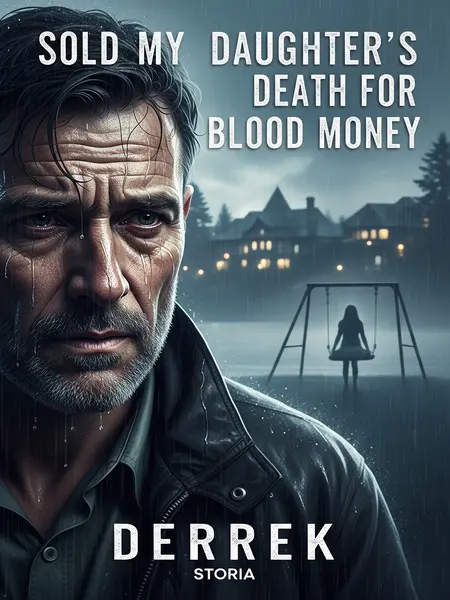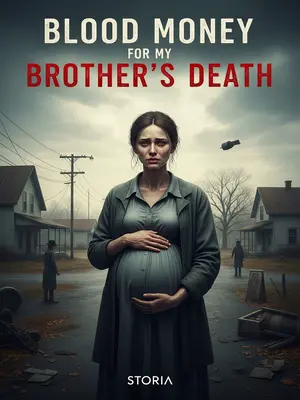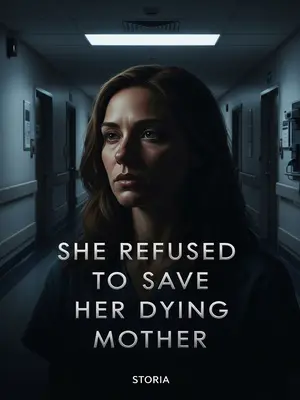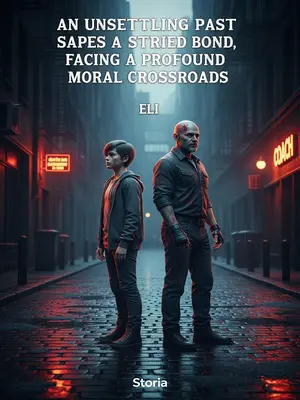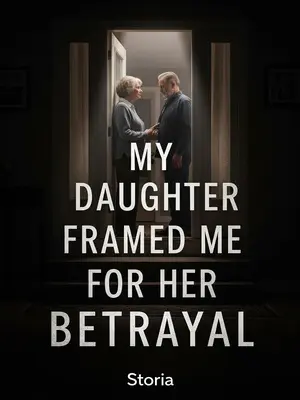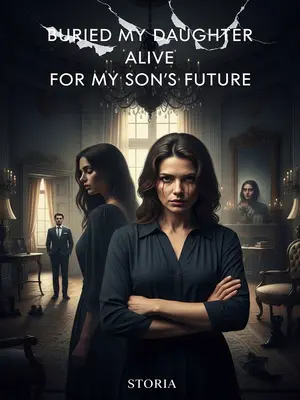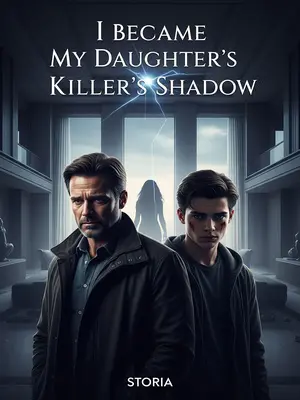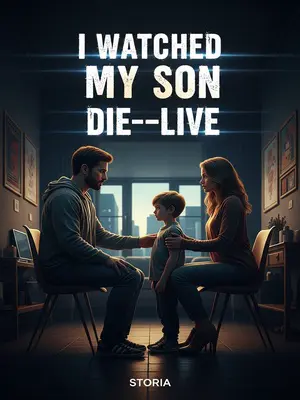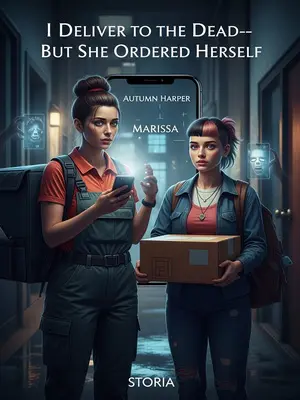Chapter 2: Grief, Accusation, and Bargains
When my daughter was pulled from the water, I refused the request for an autopsy and, acting quickly, sent her body to be cremated.
I sat in the corner of the funeral home lobby, hands clasped tight enough to leave half-moons in my palms, ignoring the way everyone else—her teachers, my sister-in-law, even the town coroner—kept asking, "Are you sure?" I was sure. I just wanted it over.
When my ex-wife arrived, she slapped me twice, sobbing uncontrollably. "Why didn't you agree to an autopsy? How did she die? Give me back my daughter!
Derek, I should never have left her with you. You... don't ever think of seeing your daughter again in this life!"
Her voice cracked at my name, and the slap stung hot, sharp as when I first learned she wanted the divorce. She was trembling so hard she could barely hold the urn, her knuckles white around its smooth ceramic. Someone from the funeral home tried to offer her a tissue, but she batted it away, hiccuping with rage and grief.
With the marks from her slaps still burning on my face, I coldly shoved the urn into her hands. "If you want it, take it."
I couldn't look at her face—just at her shoes, at the linoleum floor. My voice sounded hollow, like I was reading someone else's lines from a script. The air smelled like lilies and cheap coffee, and for a second, I thought I might throw up.
I thought this would just be another storm that would eventually pass.
After all, with the SATs approaching, nothing was more important to a top high school in Maple Heights.
SAT fever hit the whole community that spring—parent meetings, guidance counselors, college banners hung in the halls. It was all anyone could talk about, as if tragedy could be put on hold until the tests were done.
But the next day, the police still came knocking at my door.
"Mr. Parker, we suspect your daughter didn't jump into the river because of ordinary academic pressure."
The policewoman took out a video—more precisely, a dashcam recording.
In the video, my daughter was forced to her knees by two people and slapped. The fingers that used to write beautiful essays were being ground under a pair of gleaming white sneakers.
The sneakers were the kind every girl in school wanted—expensive, limited edition. My daughter's hands, trembling, pressed to the wet grass, knuckles scraped. You could hear her soft whimper over the laughter. I watched it all in a kind of slow-motion horror, my hand clenching tighter around my coffee mug until I thought it might shatter.
The girl in the white sneakers smiled and said, "Natalie, didn't I tell you not to flirt with the class president?"
Her voice was syrupy sweet, the kind of cruelty that wraps itself in friendliness. The other girl, with a ponytail and an old field hockey jacket, grinned wide, nudging the one with the sneakers. Their voices echoed in my kitchen, louder than the fridge humming or the TV in the next room.
"Amber, you forgot, some girls just can't live without a guy, haha..."
The video ended there, but we could all imagine what happened next.
I couldn't breathe for a second after the screen went dark. My coffee went cold in my hands, and for a moment, I wanted to smash the laptop right there on the kitchen table.
At that moment, the policewoman's eyes were full of righteous anger, but I still refused their help.
She hesitated, looking at me like she couldn't figure out if I was stone or just broken. I stared back, flat and unmoved, thinking only of how the fridge still needed fixing, and how little any of this could matter now.
What I didn't expect was that after being turned away by me, the policewoman went to find my ex-wife.
In court, listening to my ex-wife's tearful accusations, everyone present was moved.
She was a mess—hair wild, voice cracking, clutching tissues in both hands. The stenographer kept pausing to wipe her own eyes, the bailiff looking away. Even the judge looked worn down by the weight of it all.
But the three girls on the defendant's bench remained indifferent.
The ringleader was named Amber Carlson.
At that moment, she was chewing gum, watching my ex-wife rant and curse on the other side like a clown, and even smiled. "Lady, can you chill? It’s not my fault your kid couldn’t handle a joke."
She popped her gum, looking bored out of her mind. Her nails were painted a glossy red, tapping on the table, while her lawyer whispered something in her ear that she promptly ignored.
"We were just messing around with her."
She smirked, glancing at her two friends like it was all a joke. The crowd behind the rail rustled, someone gasping audibly. The judge banged the gavel for order.
"Who knew she was so fragile? Is that our fault?"
Her words hung in the courtroom like poison. The other two girls shrugged, eyes glazed, like they'd been coached by a crisis PR firm.
My ex-wife screamed in disbelief, her face twisted. "A joke? You killed someone!"
Her desperate shouts made the judge frown and scold, "Order! Maintain order in the court."
The judge’s glasses slipped down her nose as she glared over the rim. Even the court reporter’s typing slowed, the keys clacking in awkward, halting bursts.
Amber pouted, dug at her ear, her eyes full of disdain and arrogance. "Lady, can you chill? It’s not my fault your kid couldn’t handle a joke."
She said it with a sing-song whine, her eyes flicking to her mother, who was sitting stone-faced in the gallery, arms crossed like she was holding herself together by force.
"If you have something to say, talk to my family's lawyer."
The lawyer was already stacking papers in a leather briefcase, clearly bored with the proceedings. He didn’t look at any of us. Amber’s voice carried across the aisle like she was reading a grocery list.
"Of course, if you're really strapped for cash, I can spare a couple thousand bucks of pocket money."
My ex-wife's eyes were bloodshot, as if she wanted to tear someone apart right there.
Her fingers clutched at her handbag so tightly the leather creaked. A bailiff hovered, ready to step in. Her teeth ground audibly, rage making her tremble in place.
Unfortunately, I held her down firmly, muttering in a low voice, "Enough, isn't this humiliating enough?"
I felt her shudder, sobs caught in her throat. For a second, I almost wanted to let go, to let her do whatever she wanted, but I couldn’t. Not anymore.
My ex-wife glared at me, as if she had never known me. "Derek, that's your own daughter—"
Her words pierced me, but I kept my gaze fixed forward, jaw tight. In that courtroom, I felt like a shadow, already erased from my own life.
Of course, my ex-wife's demand for severe punishment was not granted.
Because the evidence was insufficient, and the three girls on trial all came from wealthy families, they were willing to offer compensation I couldn't refuse.
I could see the parents—designer suits, Rolex watches, business cards exchanged with the judge’s clerk. Maple Heights’ finest, wielding their privilege like a shield.
The compensation was as high as $45,000.
Even Mr. Hughes, a coworker who was paralyzed after falling from scaffolding at the construction site, only got $30,000.
The number seemed obscene, sitting there in neat print on the page. I remembered the hush at the job site after Mr. Hughes’ accident—hard hats off, everyone silent, the foreman promising the company would "take care of it." They didn’t.
So, when the opposing lawyer pushed the settlement agreement toward me, I signed it without hesitation.
The pen felt slick in my grip, my signature looping across the line as if it belonged to someone else. Cameras flashed. Someone hissed, "Blood money," under their breath. My hand trembled, but I finished.
Facing countless contemptuous stares, I put on a greedy face and licked my dry lips. "Her life is gone, but the living shouldn't have to suffer too, right?"
The words tasted bitter, but I said them anyway. I wondered if Natalie would have hated me for this, or if she’d understand that sometimes survival looks ugly. Somebody behind me muttered something ugly, but I didn’t look back. Let them talk.
